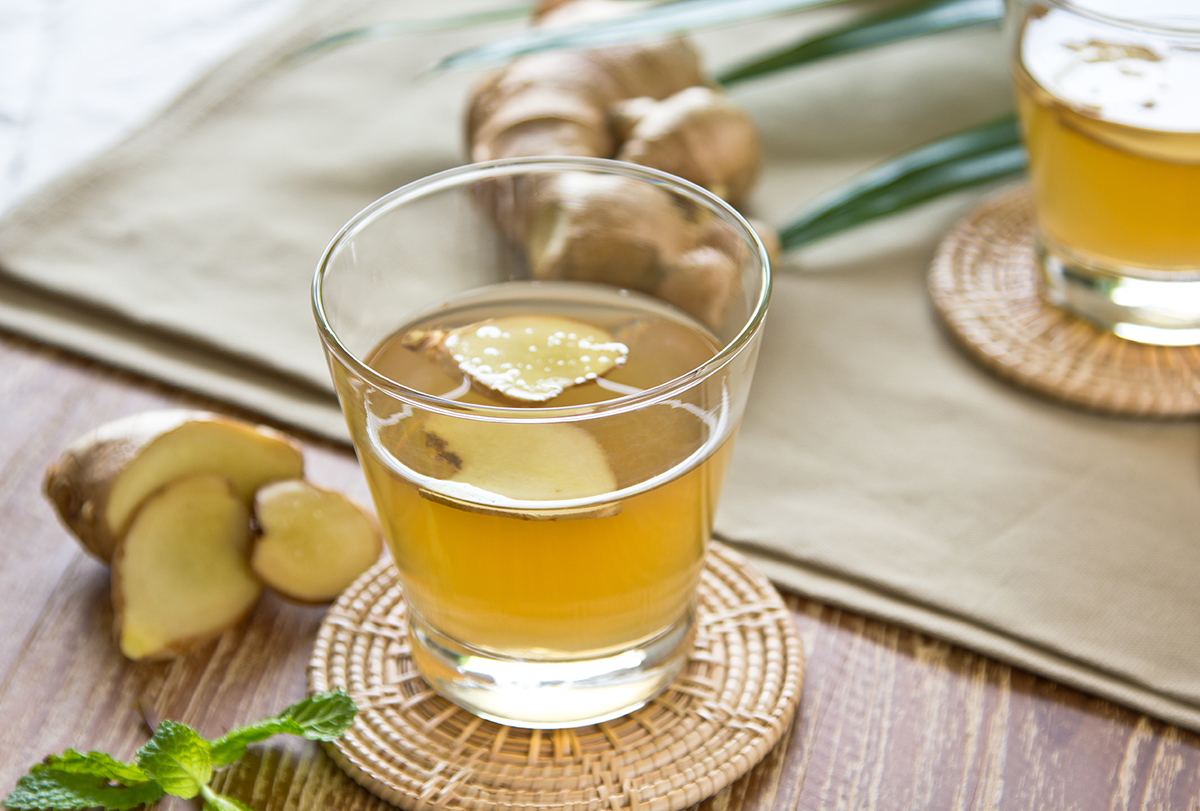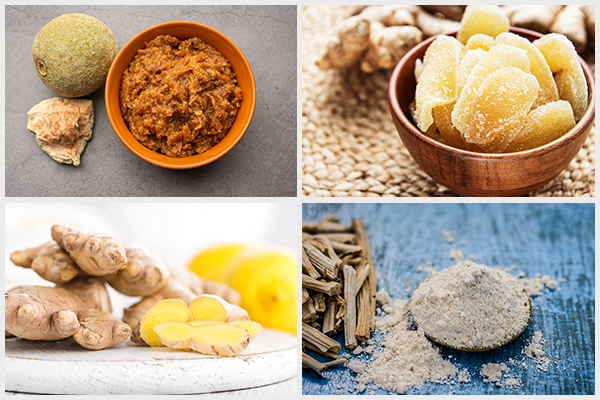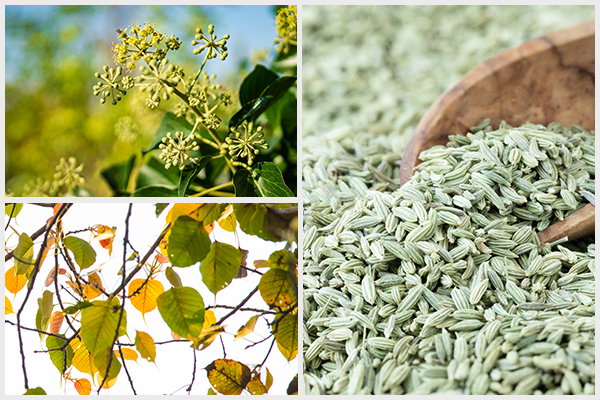In this article:
A burning sensation in the stomach is a common problem these days, on account of the fast-paced life, ingestion of food that is not easily digestible, health issues, and many other associated problems.

Stomach burn can cause pain, stress to the lining of the stomach, and sheer fatigue. (1) Various home remedies can be tried to get rid of stomach burning without burning a hole in your pocket.
Read on to know about the underlying causes of stomach burning and some scientifically proven home remedies that can effectively treat it.
Home Remedies for Burning Sensation in the Stomach
A combination of herbal dietary supplements and lifestyle changes is useful in relieving burning sensations in the stomach.
Some of the herbs for treating burning sensations in the stomach are as follows.
1. Consume Bel or wood apple
Bel or wood apple (Aegle marmelos) is indigenous to India and has been introduced to Florida and Hawaii, USA. It has many medicinal properties and is an antioxidant.
Fruits and roots of the bel tree have been shown to have gastroprotective and anti-ulcer activity against acute ulcers in rats. (2)
How to consume:
Mash bel fruit pulp and refrigerate it for an hour. Mix it with some sugar to prepare an iced drink (sherbet). Drink it as such, or dilute it with some water. This drink is not only refreshing but also improves digestion.
2. Try mango ginger
Mango ginger (Curcuma amada) is closely related to turmeric (Curcuma longa). Like ginger, both plants belong to the family Zingiberaceae. The rhizome of C. amada resembles that of ginger, but it has a raw mango flavor rather than the pungent flavor associated with ginger.
This plant is native to the Indo-Malayan region, and its rhizome is widely used in the preparation of pharmaceutical formulations, pickles, and drinks. It exhibits antioxidant properties and has been used in traditional medicine to treat many respiratory and gastrointestinal disorders such as ulcers and H. pylori infections. (2)
Extracts of a related plant, turmeric, have also been shown to have antacid properties. (2)(3)
How to consume:
You can take mango ginger in the form of chutney, candy, or sauce.
3. Use ginger

Ginger (Zingiber officinale) has been used successfully to treat irritable bowel syndrome (IBS), abdominal bloating, diarrhea, nausea, and vomiting (3) on account of its anti-inflammatory properties.
How to consume:
Ginger can be used as a spice in curries, soups, and gravies or can be consumed in the form of tea.
Caution: Moderation is advised in the use of ginger. The maximum limit allowed is 4 g of ginger per day for normal people and not more than 1 g per day for pregnant women. It is totally forbidden if you are on blood thinning medications or if you have a bleeding problem.
4. Consume Shatavari regularly
Shatavari (Asparagus racemosus) is an herb found in Australia, Africa, and Asia. It is a well-liked vegetable in many European countries, too.
Its root mainly is used in the treatment of gastrointestinal disorders and ulcers. According to one study, its root, along with other Ayurvedic herbal ingredients, was used in the treatment of indigestion, heartburn, and heaviness and was found to be effective. (4)
How to consume:
The juice obtained from Shatavari cures ulcers and other ailments of the gastrointestinal tract. Regular consumption of Shatavari can also treat gastroparesis, a disease that usually causes diarrhea, vomiting, abdominal pain, and heartburn.
5. Try fennel seeds
Fennel seeds (Foeniculum vulgare; saunf) are consumed after a meal to aid digestion and provide relief from burning sensations in the stomach. (5)
Studies on rats have demonstrated that the aqueous extract of fennel has an anti-ulcerogenic activity against ethanol-induced gastric lesions. (6)
How to consume:
Soak a few fennel seeds in a little water and drink it, or directly chew a few of them for relief from acidity and heartburn.
6. Peepal

Peepal (Ficus religiosa) is a sacred perennial tree found in Central India. It has been used widely in traditional Indian medicine for the treatment of different disorders.
Tests conducted in rat models using different parts of this tree have shown that it has good anti-ulcer properties. (5) The aqueous and ethanolic extracts of the leaves of Ficus showed antibacterial activity against dysentery- and typhoid-causing bacteria, while the stem and bark extracts were effective against worms. (7)
How to consume:
Make sweet balls made by mixing the paste of the leaves of the peepal plant with jaggery, and consume it 3–4 times a day to ease stomach pain.
Caution: Moderation is advised when consuming peepal. When taken in a medicinal amount, it is generally considered safe, but when taken in higher amounts, it can have serious side effects such as bleeding in the digestive tract. (8)
7. Uncommon herbal remedies to try
Some herbs that are uncommon but scientifically proven to be effective for burning sensations in the stomach are as follows.
a. Chinese thoroughwax
Chinese thoroughwax (Bupleurum falcatum) is also called sickle-leaved hare’ ear. Roots of this plant are effective in the treatment of ulcers and other gastric disorders. (5)
b. Shepherd’s barometer
Shepherd’s barometer (Carlina acanthifolia) is a perennial species in the hills and mountains of Eastern Serbia. Tests on rats have demonstrated the plant’s anti-ulcer properties.
A study mentioned it as an herbal treatment for stomach ulcers. (5) The study revealed that the essential oil from this herb’s root exhibited antioxidant, anti-inflammatory, and anti-ulcer properties. (9) However, sufficient evidence is lacking.
c. Cancerina
Cancerina (Hippocratea excels) is a climbing plant that grows in Central America and Mexico. Root and bark extracts of this plant have been used as an anti-ulcer remedy in traditional medicine. (5)
Note: Though natural products are generally considered safe and have minimum side effects, caution is advised in the use of herbal remedies, and overuse is discouraged. Hence, always read the product labels and follow the directions given on it. Any product, be it herbal or allopathic medicine, must be taken under the close supervision of a doctor only.
Causes of Burning Sensations in the Stomach
A feeling of a fiery stomach is usually due to any one of the following:
1. Stomach infections such as those caused by Helicobacter pylori, and certain medications
Infection with H. pylori happens when H. pylori bacteria invade your stomach. This is most common during childhood. H. pylori infection, a prevalent cause of stomach ulcers (peptic ulcers), may be present in more than half of the world’s population. (10)
Certain medicines, such as nonsteroidal anti-inflammatory drugs (NSAIDs), can cause gastric issues, which may cause a burning sensation in your stomach.
2. Indigestion
Indigestion causes stomach upset and may be due to eating something that doesn’t agree with you or eating food that is contaminated. Some more symptoms of indigestion in addition to a burning sensation include nausea, gas, rumbling of the stomach, and heartburn (GI disorders). (11)(5)
Indigestion causes stomach pain but not epigastric pain, which is a major symptom of burning sensation in the stomach.
3. Gastrointestinal reflux disease (GERD)
GERD is a disease that causes frequent acid reflux from the stomach to the esophagus, causing heartburn. (5)
4. Food allergies
Certain foods do not agree with some people, leading to unpleasant reactions such as a burning sensation in the stomach. (12) Examples are dairy products, which induce strong reactions in lactose-intolerant people.
5. Alcohol
Alcohol can irritate the stomach lining and cause a burning sensation. (13) Alcohol consumption may be a risk factor for GERD, (13) causing a burning sensation in the stomach and chest. (5)
6. Peptic ulcers
Peptic ulcers are sores in the stomach and may be caused by the secretion of larger-than-necessary amounts of hydrochloric acid in the stomach. Peptic ulcers can corrode the lining of the stomach and thus cause a burning sensation and pain in the abdomen. (2)
Treatment for Burning Sensations in the Stomach
Depending on the diagnosis, medications are prescribed. In the case of stomach infections, antibiotics are needed, but other cases may be treatable using over-the-counter medicines. (14)(15)
Note: According to doctors, antibiotics have no role until the burning sensation is arising from H. pylori infection.
Diagnosing the Cause of Burning Sensations in the Stomach
The diagnosis often begins with a physical examination and asking the patient simple questions such as if eating makes the pain worse or better. These are then followed by ultrasonography and endoscopy, as recommended by the doctor. (14)(15)
Note: Generally ultrasonography cannot detect ulcers.
Self-Care and Lifestyle Changes

1. Dietary changes
A healthy lifestyle coupled with a healthy diet is advocated in the management of burning sensations in the stomach. This includes sticking to a regular meal pattern; limiting intake of alcohol, caffeine, spicy foods, and fat; and consuming fiber-rich foods such as nuts and fruits. (16)
2. Yoga
Yoga is relaxing because it influences the general hormonal balance. It especially lowers the levels of epinephrine, which is secreted during stress. This, in turn, causes many physiological changes such as reductions in heart rate, blood pressure, and respiratory rate.
On account of its stress-busting effect, yoga decreases the secretion of acid in the stomach, a major risk factor for peptic ulcers. Hence, yoga can be considered a treatment option for GERD and peptic ulcers.
Regular practice of certain yogic breathing exercises such as kapalbhati and agnisar kriya along with medications has been reported to show a mitigation of the severe symptoms of GERD. (17)
Note: Yoga is fantastic, but before going for herbal supplements or medicine, a proper diagnosis needs to be made by a specialist doctor.
Most-Asked Questions About Burning Sensation in the Stomach
Does milk help stomach burn?
Milk has its pros and cons when it comes to easing stomach burning. Skimmed milk may help, whereas full-fat milk may increase the symptoms of stomach burning.
What foods help relieve stomach burn?
Whole grains such as oatmeal, brown rice, and whole-grain bread help in relieving stomach burn. Lean protein sources such as chicken, seafood, tofu, and egg whites are also recommended to help soothe an irritated stomach.
A bland diet that includes soft foods, low in fiber, and not very spicy is recommended. (18) In a bland diet, avoid eating spicy, fried, and raw food, and refrain from drinking alcohol and caffeinated beverages.
Final Word
World over, the use of alternative approaches to address health issues is on the increase, and the same applies to stomach burning. However, do consult a doctor if the symptoms persist for more than a week.
A consultation with a gastroenterologist is recommended in cases of persistent nausea and vomiting, blood in the stools or dark stools, fatigue, and unexplained weight loss.
- Was this article helpful?
- YES, THANKS!NOT REALLY


